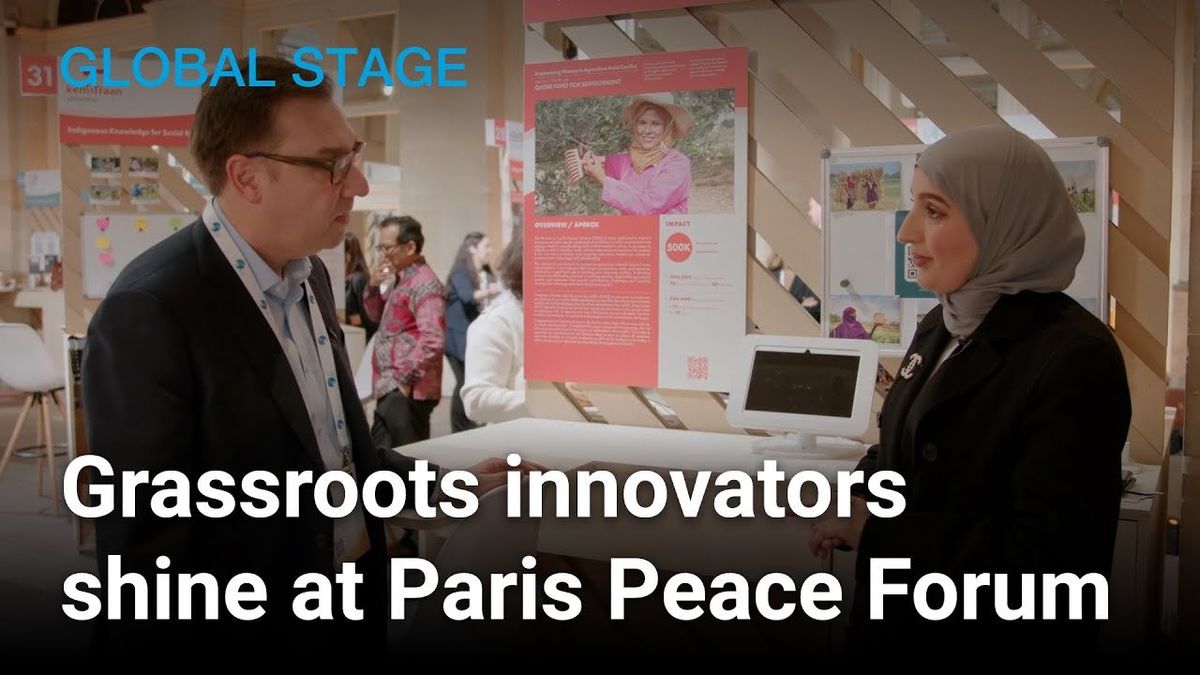Global gatherings like the UN General Assembly, Munich Security Conference, and the World Economic Forum have no shortage of power players engaged in very high-level discussion and debate about the state of the world. The Paris Peace Forum, which wrapped this weekend in the City of Lights, is no exception. The host country’s President Emmanuel Macron was on deck to chat about climate change with Prime Minister Mia Mottley of Barbados. Ukraine’s President Volodymyr Zelensky joined via video to remind everyone at the Peace Forum that a war still rages 1200 miles away, and former New Zealand Prime Minister Jacinda Ardern warned of the dangers of extremist content online.
But the gathering in Paris also put grassroots activists front and center, literally. As you entered the Palais Brongniart, the stunning 19th-century structure that has served as home to the PPF since its inception in 2018, the first sight was a sea of kiosks, each staffed by representatives from more than 50 organizations from around the world who are working at local levels to combat the most pressing problems of our time.
One Qatar-based organization funds projects that promote female leadership—from farms to small business ownership. Another group based in Helsinki is training people in Ukraine to process evidence and testimony of Russian war crimes. From climate change to responsible AI, many of the conversations in the foyer of the palace were as captivating as the ones happening on the main stage a flight below.
Each year, the PPF accepts applications for its “Space for Solutions,” giving physical space inside the venue for these organizations to network with some of the most influential players on the planet.
Aurélie Villaespesa, Projects Officer at the Paris Peace Forum, explained to GZERO’s Tony Maciulis that more than 4000 organizations applied this year. Roughly 50 of the very best were invited to join the forum and share their work, message, and mission.
PPF gave GZERO a chance to roam through the space and meet some of the grassroots gamechangers proving that solutions don’t just come from inside the palace—they often rise from the people.
- Should AI content be protected as free speech? ›
- Stop AI disinformation with laws & lawyers: Ian Bremmer & Maria Ressa ›
- AI, election integrity, and authoritarianism: Insights from Maria Ressa ›
- Climate activists take on … Montana ›
- Women rising up against Iran's regime: journalist and activist Masih Alinejad ›
- How one Ugandan climate activist was literally “cropped out” of the climate conversation ›
- How are emerging technologies helping to shape democracy? ›
- Paris 2024 Olympics chief: “We are ready” - GZERO Media ›


















